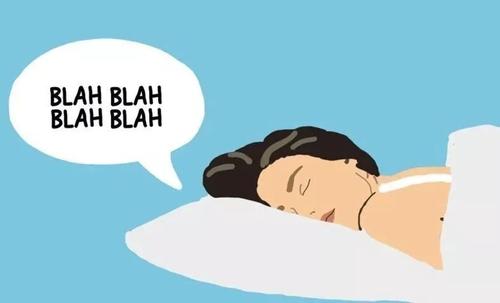Advertisement
In the respect of weight loss, diet and exercise are often considered the two important factors. But sleep – a lifestyle factor, which is always being overlooked, also plays an important role.
The recommended length of sleep for adults is 7 to 9 hours per night, but many people usually get less than that.

Research has shown that sleep deprivation is associated with increased body fat and obesity and may also affect how easily we lose weight through controlled diets.
Usually, the goal of losing weight is to reduce body fat while retaining muscles as much as possible.
One study found that 5.5 hours of sleep per night over a two-week period resulted in less fat loss and more muscle loss than 8.5 hours of sleep per night.
Another study found that sleeping five hours every five nights over the course of an eight-week experiment was no different from previous studies. These studies suggest that even catching up on sleep on weekends is not enough to reverse the negative effects of sleep deprivation.
Metabolism, appetite, and sleep
Sleep duration is associated with weight loss effects for several reasons, including changes in metabolism, appetite, and eating habits.
Sleep affects two of the body's most important appetite hormones, leptin and auxin releasing peptides.
Leptin is a hormone that lowers appetite, so when leptin levels are high, we usually feel full. On the other hand, auxin releasing is a hormone that stimulates the appetite and is often called ‘ghrelin’, which is thought to be responsible for hunger feelings.
Sleep deprivation has been found to increase ghrelin levels and lower leptin levels.
Advertisement
Therefore, increased food intake due to changes in appetite hormones may lead to weight gains. In the long run, this means sleep deprivation could lead to weight gains. Therefore, get a good night’s sleep first.
With changes in appetite hormones, sleep loss begins to affect our food choices and the way our brains perceive food.
The researchers found that compared to the time during good sleep, when sleep was restricted, the same volunteers’ food-craving brain regions were more active.
This could explain why sleep-deprived people eat snacks more frequently and tend to choose sweets.

The amount of sleep you get also affects your metabolism, especially the metabolism of glucose (sugar).
After meal, the body releases insulin, a hormone that helps process glucose in the blood. But sleep deprivation impairs the body's response to insulin, reducing its ability to absorb glucose.
We may be able to restore hormone levels by occasionally catching up on sleep, but in the long run, this can lead to unhealthy conditions such as obesity and type 2 diabetes.
Studies have shown that four hours of sleep is enough to impair the body’s insulin response to glucose intake in healthy young adults.
People who are lack of appetite seek out excessive rewards and tend to choose foods high in glucose, so impaired insulin responses can make things worse.
Fortunately, physical activity has shown prospect to resist poor sleep. Despite this, there is no conclusive evidence that long-term physical activity can help us counteract the effects of sleep deprivation.
Therefore, sleep, along with diet and physical exercise, should be considered as an essential element in a healthy lifestyle.





